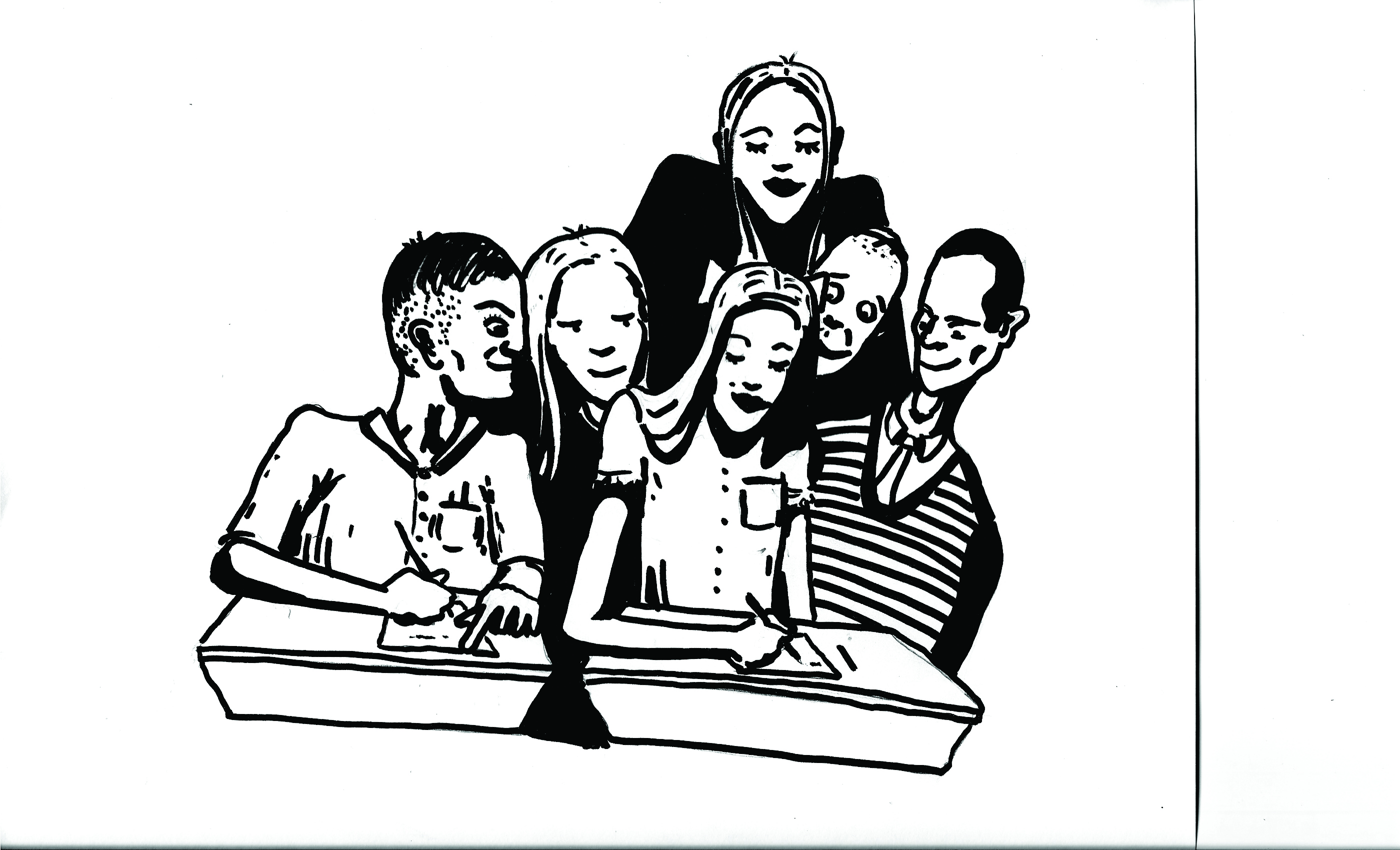Art by Zander Asplundh
“There’s a power that lies within the Honor Code for students,” argued Dean Cardwell. We just don’t always recognize that power for what it’s worth. Connecticut College students tend to imagine the Honor Code simply as a set of rules, while in reality it provides a set of responsibilities to integrity, civility, and respect for the community. This distinguishes it from the Student Code of Conduct, which covers alcohol and illicit drugs as well as social functions policies.
Dean Cardwell, Associate Dean of Student Life, serves as an adviser to the Honor Council and plays a big role in how the Honor Code is enforced on campus. She argues that the Honor Code cannot be considered only in terms of its violation. The Honor Code provides the students at Connecticut College with a number of perks: self-scheduled exams, shared governance and even leaving your laptop at a table in Shain Library while you grab a bite to eat at the dining hall.
Although faculty and staff are held to certain standards, they are not charged with signing the Honor Code and therefore do not have a strong sense of familiarity with its content or the Honor Council process. According to both Dean Cardwell and Honor Council Chair Hilary Nigrosh ’14, this might be a contributing factor to a decrease in the number of academic integrity violation reports. In the fall semester of 2012, there were 20 academic integrity cases, whereas at this point in the Fall 2013 semester, there have only been four cases. Unfortunately, neither Dean Cardwell nor Nigrosh believe that this means there are fewer violations. Rather, Nigrosh cites a lack of reporting from both faculty and students.
Faculty members often do not report violations due to a perceived lack of evidence or a lack of understanding about the Honor Council process and its importance to student life. Nigrosh stresses that this is in violation of the faculty handbook: “The protocol is: if you are made aware of an academic integrity violation, whether it’s through your own knowledge or through someone coming to you, you must report it to Dean Cardwell.” There have been efforts to inform the community about the Honor Code, and some members of the faculty and staff have expressed interest in signing the Honor Code in order to strengthen the College’s sense of community.
In terms of reporting by students, there seems to be a strong desire to be able to report Honor Code violations anonymously. A questioned raised by the Honor Council, arguably the people on campus most familiar with the Honor Code, is whether or not anonymity would undermine the concept of “peers holding peers accountable.” During a hearing, there is an opportunity for the complainant and respondent to ask each other questions as well as a policy of confidentiality, so students should feel safe reporting their peers for violations.
Nigrosh added “[as students] it’s our responsibility under the Honor Code to report violations,” regardless of convenience or the amount of evidence. It is the job of the Honor Council to find a student responsible for upholding to honor code or responsible for violating it. The Honor Council, according to Dean Cardwell, exhibits fair judgment in weighing the facts of cases and determining disciplinary action.
While reports of academic integrity violations may be lower than usual, Nigrosh noted that there has been an increase in the number of students reporting their peers or reporting themselves in regards to vandalism. The Student Government Association held a campaign last year in which commonly vandalized parts of campus – notably light fixtures and paper towel dispensers – were labeled with their specific cost of repair. Students therefore had no choice but to confront the literal price of disrespecting the campus space. The extent of the influence of SGA’s campaign on vandalism cases is unknown, but at least peers are holding each other accountable.
The Honor Code is an additional forum on campus that combines the social and academic aspects of Connecticut College, though it is often either thrown into conversation as a half-joke or limited in the thoughts of students to a few perks or punishments. Throughout the course of my four years at Conn, I have seen the extent to which it impacts our every day lives. It fosters a respectful community here in our little bubble. Without the Honor Code, there would be at best a very weak sense of shared governance. As students, we need the Honor Code to have the confidence to shape our community— to make it a better and more just place for the present and the future. •











Great, well written article. As a freshman at Conn it can become very difficult understand how people should be acting when giving such freedoms over exams and tests. The idea is that students can self-govern and in recent years I’ve heard that it simply has’t been as relevant. Here’s to hoping it makes a comeback.